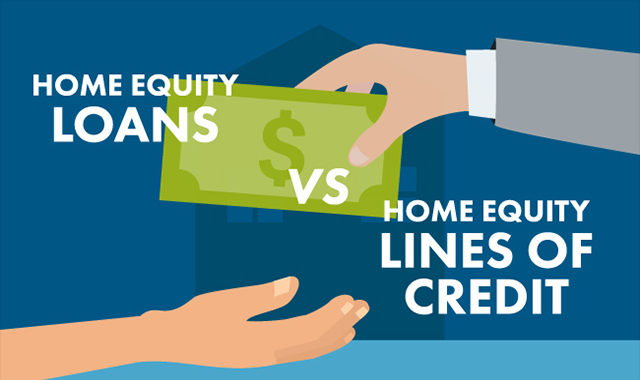Who Can Access Equity Release Mortgages and Why
Who Can Access Equity Release Mortgages and Why
Blog Article
Exploring the Various Sorts Of Equity Release Mortgages Available Today
Equity Release mortgages present different options for house owners aged 55 and over. equity release mortgages. These economic products deal with different needs and choices, permitting people to access funds from their home. From lifetime home loans to shared recognition mortgages, each type uses unique benefits. Recognizing these options is crucial for making educated decisions. What aspects should one take into consideration when picking one of the most ideal equity Release plan? The details that comply with might shed light on this important subject
Comprehending Equity Release Mortgages
Equity Release mortgages offer homeowners, usually those aged 55 and over, with a method to access the value locked up in their residential or commercial property without requiring to offer it. This economic alternative enables people to convert a section of their home equity into money, which can be made use of for different functions, such as home improvements, repaying debts, or funding retirement.Equity Release can take different forms, however it fundamentally involves borrowing versus the worth of the home while preserving possession. House owners can choose to get a swelling amount or a collection of smaller sized payments, depending upon their economic requirements and preferences.Additionally, the amount readily available for Release is affected by the property's value, the property owner's age, and specific loan provider requirements. Overall, recognizing equity Release mortgages is crucial for property owners to make informed choices regarding taking advantage of their home's equity while taking into consideration the long-term ramifications.
Life time Mortgages
Lifetime home mortgages represent one of the most prominent kinds of equity Release. This economic item permits homeowners, usually aged 55 or older, to borrow against the value of their home while maintaining possession. The funding, which is safeguarded versus the home, accrues rate of interest with time however does not call for monthly payments. Instead, the financing and built up interest are settled when the property owner dies or relocates right into long-lasting care.Lifetime home mortgages provide flexibility, as borrowers can pick to obtain a round figure or opt for a drawdown facility, accessing funds as required. Significantly, lots of strategies featured a no-negative-equity assurance, guaranteeing that borrowers will certainly never ever owe even more than the value of their home. This attribute provides satisfaction, allowing individuals to appreciate their retired life without the fear of diminishing their estate. On the whole, lifetime mortgages function as a sensible choice for those seeking financial backing in later life.
Home Reversion Plans

Drawdown Life Time Mortgages
While lots of homeowners look for methods to access their riches, drawdown lifetime home mortgages present a versatile alternative that enables people to Release funds progressively. This sort of equity Release home loan allows property owners to borrow against the value of their property while maintaining ownership. Unlike conventional life time home mortgages, drawdown strategies permit customers to access a part of their equity upfront and withdraw extra funds as required, as much as an established limit.This attribute can be especially beneficial for those who wish to handle their finances very carefully, as it lessens passion build-up by just billing rate of interest on the quantities drawn. Furthermore, drawdown life time home mortgages usually feature a "no adverse equity warranty," making sure that customers will certainly never owe more than their home's value. This choice suits senior citizens that prefer financial safety and flexibility, allowing them to fulfill unanticipated costs or preserve their way of living without needing to sell their residential or commercial property.
Enhanced Lifetime Mortgages
Boosted Life time Mortgages use distinctive benefits for eligible homeowners seeking to Release equity from their residential or commercial properties. Comprehending the eligibility standards is crucial, as it identifies who can take advantage of these specialized financings. However, it is additionally important to assess the potential downsides associated with improved options, making sure an all-round point of view on their use.
Qualification Standards Discussed
Recognizing the eligibility standards for Boosted Lifetime Mortgages is vital for prospective applicants seeking to access the equity in their homes. Commonly, applicants need to be aged 55 or older, as this age requirement is typical in the equity Release market. Homeowners ought to have a home valued at a minimum limit, which can differ by lender. Significantly, the Source home needs to be their main house and in good condition. Lenders typically assess the house owner's health status, as particular health and wellness conditions may improve eligibility and benefits. In addition, candidates must not have existing significant financial obligations safeguarded against the residential property. Satisfying these criteria permits individuals to discover Enhanced Life time Home loans as a sensible alternative for accessing funds linked up in their homes.
Benefits of Enhanced Mortgages
After clarifying the eligibility requirements, it becomes noticeable that Enhanced Life time Mortgages use several considerable benefits for property owners seeking to leverage their building equity. Largely, they provide accessibility to a larger finance amount compared to basic lifetime mortgages, benefiting those with wellness conditions or age-related factors that increase their life span danger. This enhanced loaning ability allows homeowners to fulfill numerous financial requirements, such as home improvements or retirement costs. Furthermore, these home loans generally include flexible payment options, making it possible for debtors to manage their financial resources more effectively. The no-negative-equity assurance further assures that property owners will certainly never ever owe more than their residential or commercial property's worth, giving satisfaction. Generally, Boosted Lifetime Home mortgages present an engaging choice for qualified homeowners seeking financial remedies.
Potential Downsides Considered
While Improved Life time Mortgages provide many benefits, possible downsides necessitate mindful consideration. One substantial problem is the influence on inheritance; the equity launched decreases the worth of the estate delegated recipients. Additionally, these mortgages can accumulate substantial interest gradually, causing a considerable financial debt that may go beyond the original loan quantity. There might also be constraints on building alterations or rental, limiting homeowners' versatility. Moreover, boosted items typically require specific health and wellness problems, indicating not all home owners will certify. Finally, managing the charges and costs related to these mortgages can be intricate, potentially bring about unanticipated expenses. Consequently, individuals should extensively analyze their scenario and seek advice from economic consultants before proceeding.
Shared Gratitude Home Mortgages
Shared Admiration Mortgages stand for an one-of-a-kind economic setup that permits homeowners to accessibility equity while sharing future property value boosts with the lending institution. This technique provides prospective advantages such as minimized monthly settlements, however it also includes downsides that need to be thoroughly considered. Comprehending the qualification demands is essential for those curious about this choice.
Principle Introduction
Equity Release home loans, specifically in the form of common admiration home loans, offer home owners a distinct economic solution that enables them to gain access to funds by leveraging the worth of their residential property. In this arrangement, a look at these guys loan provider gives a financing to the property owner, which is commonly paid back with a share of the property's future gratitude in worth. This indicates that when the property owner sells the home or dies, the loan provider obtains a portion of the raised worth, as opposed to just the first finance amount. Shared recognition mortgages can be appealing for those looking to supplement their revenue or money significant expenditures while keeping ownership of their home. Nonetheless, the financial effects of shared admiration should be thoroughly thought about by prospective debtors.
Downsides and advantages
Although shared gratitude home loans can provide substantial financial benefits, they likewise include remarkable drawbacks that possible customers must take into consideration. These home loans allow homeowners to access equity in their homes while sharing a part of any future appreciation with the lending institution. This plan can be valuable throughout times of climbing residential or commercial property values, supplying substantial funds without monthly repayments. Nonetheless, the main disadvantage is the possible loss of equity; homeowners may wind up with significantly reduced inheritance for beneficiaries. In addition, the intricacy of the terms can result in misunderstandings regarding repayment responsibilities and the portion of recognition owed. It is vital for debtors to consider these elements carefully prior to committing to a shared admiration home loan.

Qualification Requirements
What standards must home owners meet to receive a shared gratitude home loan? Largely, prospects need to be at least 55 years of ages, guaranteeing they are within the target group for equity Release products. In addition, the residential property should be their primary house and normally valued above a defined minimum threshold, commonly around ? 100,000. Lenders likewise evaluate the property owner's monetary circumstances, including income and superior debts, to establish they can take care of the mortgage sensibly. Importantly, the residential or commercial property should be in good problem and cost-free from significant lawful encumbrances. Home owners ought to additionally have a clear understanding of the terms, consisting of how admiration will certainly be shown to the lender upon sale or transfer of the home, as this affects overall returns.
Choosing the Right Equity Release Choice

Regularly Asked Questions
What Age Do I Required to Be for Equity Release?
The age requirement for equity Release generally starts at 55 for a lot of plans. Nevertheless, some carriers might supply choices for those aged 60 and above, showing varying terms based on individual circumstances and lender plans.
Will Equity Release Affect My Inheritance?
Equity Release can affect inheritance, as the amount borrowed plus interest lowers the estate's value. Heirs may obtain less than expected, depending upon the property's gratitude and the complete debt at the time of passing.
Can I Relocate Home With Equity Release?
The question of relocating residence with equity Release arises often. Typically, people can transfer their equity Release strategy to a new residential property, yet details conditions may use, calling for appointment with the lending institution for guidance.
Exist Fees Related To Equity Release Mortgages?
Fees related to equity Release home mortgages can include plan costs, evaluation fees, and lawful expenses. Furthermore, there might be very early repayment fees, which can influence the total expense and monetary effects for the customer.
Exactly How Does Equity Release Effect My Tax Situation?
Equity Release can influence one's tax circumstance by potentially boosting gross income, as released funds are taken into consideration funding. However, it typically does not incur immediate tax obligations, making it necessary to seek advice from a monetary expert for tailored support.
Verdict
In summary, the range of equity Release mortgages available today offers property owners aged 55 and over multiple paths to access their property's value - equity release mortgages. Whether selecting a lifetime mortgage, home reversion plan, or other choices, each choice offers distinctive benefits customized to private economic requirements. Cautious consideration and examination with a financial advisor are important to assure the chosen equity Release option lines up with financial situations and individual objectives, eventually assisting in informed decision-making for a secure financial future. Equity Release home mortgages existing different options for house owners aged 55 and over. Equity Release home loans provide house owners, normally those aged 55 and over, with a method to access the value tied up in their building without requiring to market it. Improved Lifetime Home mortgages provide distinctive advantages for eligible home owners seeking to Release equity from their residential more or commercial properties. Equity Release home mortgages, especially in the type of common recognition mortgages, supply property owners a distinct financial remedy that allows them to access funds by leveraging the value of their home. In summary, the variety of equity Release home loans readily available today supplies homeowners aged 55 and over several pathways to access their residential property's worth
Report this page